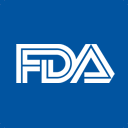 Little by little, and in no particular order, the FDA is rolling out new recommendations for use of internet and social media by the pharmaceutical industry.
Little by little, and in no particular order, the FDA is rolling out new recommendations for use of internet and social media by the pharmaceutical industry.
 Little by little, and in no particular order, the FDA is rolling out new recommendations for use of internet and social media by the pharmaceutical industry. Draft guidance released on June 18, 2014 spells out the FDA’s thinking on two topics that have not been specifically addressed before: utilization of platforms that restrict the number of characters you can use and how to correct misinformation on third-party sites. For your convenience, here are some quick answers to your questions:
Little by little, and in no particular order, the FDA is rolling out new recommendations for use of internet and social media by the pharmaceutical industry. Draft guidance released on June 18, 2014 spells out the FDA’s thinking on two topics that have not been specifically addressed before: utilization of platforms that restrict the number of characters you can use and how to correct misinformation on third-party sites. For your convenience, here are some quick answers to your questions:
Guidance on Character Space Limitations
What is the purpose of the new character space limitation guidance?
The guidance is meant to help pharmaceutical companies stay compliant when using online platforms such as Twitter, paid search ads and any other online media that restrict the number of characters that can be used.
What is not included in the new guidance?
Product websites, product pages on Facebook or YouTube, online banner ads, and other platforms that don’t enforce character limits. The FDA also made a point of saying that the guidance doesn’t address issues raised by responsive design. Presumably that will come later.
What do I need to know?
To put it simply, the FDA will be applying the same standards to these brief bits of information that it applies to all other forms of promotion. If you make a branded product claim, you’ll need to provide the generic, indication, a fair balance of risk and benefit, and a link to more detailed safety information.
So can pharma use Twitter or not?
Yes, but probably not for brand promotion. The FDA guidance holds it open as a possibility, but in practice, getting all of that information in 140 characters will be challenging. The good news is there are still lots of possibilities for unbranded promotion on character-limited media, which might be a better way of reaching your target audience, regardless.
What about paid search ads?
The same standards apply. You must include indication, generic, fair balance of risk and benefit, and a link to more safety details in branded claim ads. Not an appealing prospect; however, you have two other great options. Use unbranded ads that may line up better with your audience’s search habits regardless – or use reminder ads that include only the product name without claims.
Does the guidance apply to organic search too?
Organic search wasn’t mentioned in the guidance, most likely because companies can influence – but not control – how search engines display organic search results for their pages.
Bottom Line
Fewer characters doesn’t mean fewer rules.
Guidance on Correcting Misinformation on Third-Party Sites
Correcting misinformation is in the patients’ best interest, so the FDA is providing companies with clear guidance and a bit more leeway here.
What’s the purpose?
To provide pharmaceutical companies with a clear framework for correcting both positive and negative inaccuracies about their product that have been posted by people unaffiliated with the company on media that the company does not control. That is, user-generated content.
How do I make a correction?
Either communicate directly with the forum owner or blogger, or post directly on the forum identifying yourself as a representative of the company.
Are there any specific recommendations I should be aware of?
The intent must be to correct what’s wrong, not promote your product.
• Don’t cherry pick; correct all errors in the space, not just those that are unfavorable to your company.
• Avoid slogans, taglines, etc. that may be seen as promotional.
• Limit yourself to providing corrective information.
• Offer a link to your product’s FDA-required labeling information.
You are allowed to correct the misinformation, but not obligated to, unless you control the content. The draft guidance should not be used for situations in which your company is responsible for the content.
• If the misinformation was posted by a blogger who has no relationship with your firm, you may contact them to correct the misinformation, but you are not obligated to do so.
• If the misinformation was posted by a user on a forum you host and monitor for profanity or obscenity, you are allowed to correct the information but not obligated to do so, as long as the site carries a disclaimer to the effect that the firm did not create the content on the forum.
• However, if you host and regularly review the forum, remove or edit comments that portray your product in a negative light, and add positive postings about the product, you are controlling the content and are responsible for its accuracy.
• You are also responsible for the accuracy of anything posted on any site by an employee or agent working on your behalf.
Do I have to submit corrections I make in accordance with the draft guidance to the FDA?
No. However, the FDA recommends that you keep a record of them.
Once I make a correction, am I responsible for continuing to monitor the site?
No, and you are not responsible for ensuring that the site manager makes the correction.
Stay tuned for more social media draft guidance to come.







